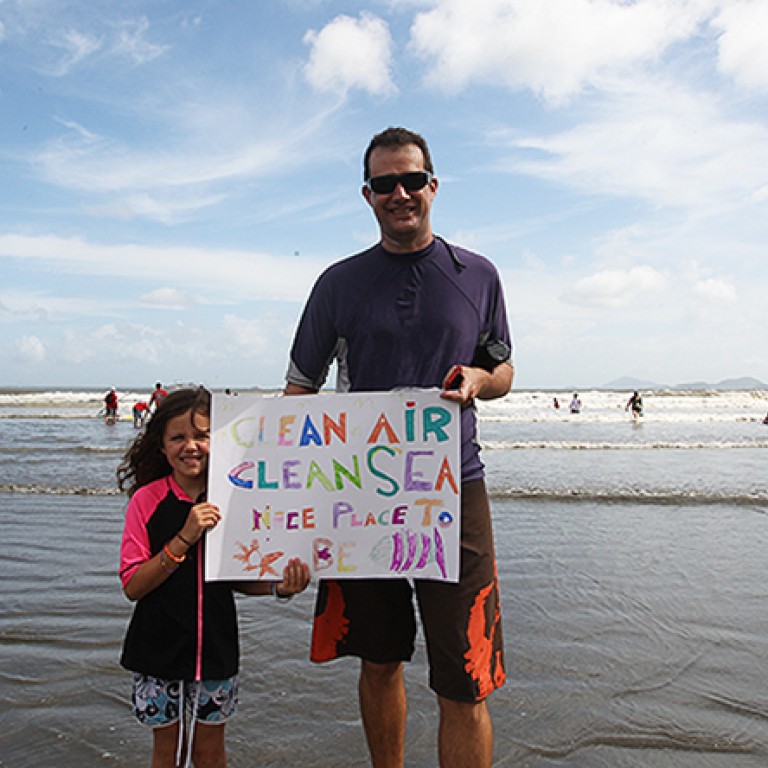
All Hong Kong must get behind plans for incinerator and landfill extensions
Richard Vuylsteke says other measures will take time to gain momentum
The Environment Bureau's blueprint for sustainable use of resources has called for co-ordinated action on waste prevention, reuse, recycling, recovery, treatment and landfills to resolve Hong Kong's escalating waste problem.
If the necessary measures are not taken, it will not only harm the quality of life, but also affect the quality of the business environment.
The current forecast is that all three landfills' capacity will be exhausted by 2019, putting Hong Kong at risk of severe environmental consequences. Time will be needed to implement initiatives to reduce waste at source, which are now being introduced or still under planning. Moreover, these initiatives may at first have only a gradual impact until people change their behaviour patterns.
In addition, even with the landfill extensions requested - and with full implementation of the waste reduction programmes - a long-term need for a significant amount of landfill space will remain.
Given Hong Kong's limited landfill space, a proportion of the residual waste needs to be treated by incineration. Many developed economies have adopted this proven technique for waste reduction. The Environment Bureau has, in fact, proposed a range of stringent environmental controls to mitigate the environmental impact of both construction and operation of incinerators. The bureau has made significant progress in developing proposals for a holistic approach to waste, such as the recent publication of a comprehensive strategy for dealing with food and yard waste. The government has made efforts to understand and address the concerns of local people living close to the three landfills. It has proposed enhanced landfill management and containment, improvements to waste transportation and odour reduction, and announced a HK$1 billion fund for expediting the development of restored landfills.
The government is engaging the local community and other concerned stakeholders over the proposed location for the incinerator at Shek Kwu Chau. The Environment Bureau recently launched a trial scheme on municipal waste charging. Nevertheless, these environmental infrastructure projects have been stymied, despite wide agreement by a range of environmental experts that they are necessary. District interests and protests have become the overriding concern - rather than the interests of the community as a whole.
Although a burden would be placed on some districts by extending the existing landfill sites and hosting a new waste incinerator, there are no better alternatives available today. At the same time, we must take action to reduce waste, improve recycling and refine the waste disposal infrastructure.
Key stakeholders, as well as the wider public, should support the proposed incinerator and landfill extensions, along with approval for the necessary funding, to allow time for other measures to reduce waste at source to gain momentum. It is clear that all these actions are needed as soon as possible.
As a world-class city, Hong Kong has an exceptional ability to solve hard problems, and its winning spirit has, for years, led to success. Hong Kong has achieved its standing by demonstrating an exceptional ability to identify issues and then collectively implement sound, practical solutions.
For this waste issue, the threat to Hong Kong's competitiveness and reputation is real. The solutions are well-studied and within reach. The time for action is now. The interests of all Hong Kong people are at stake.
